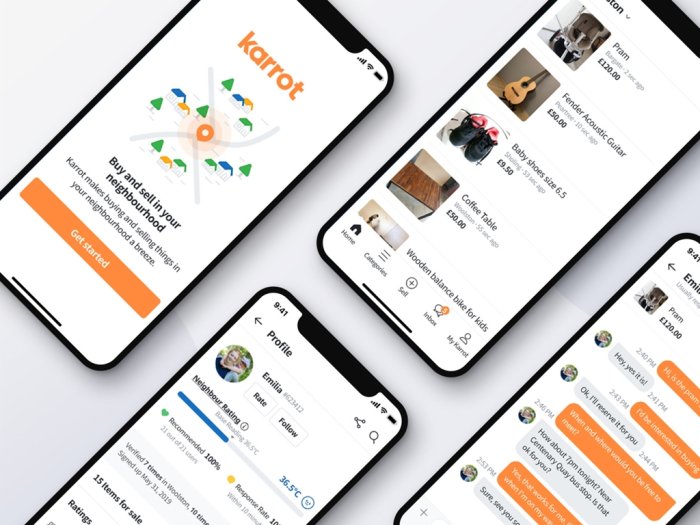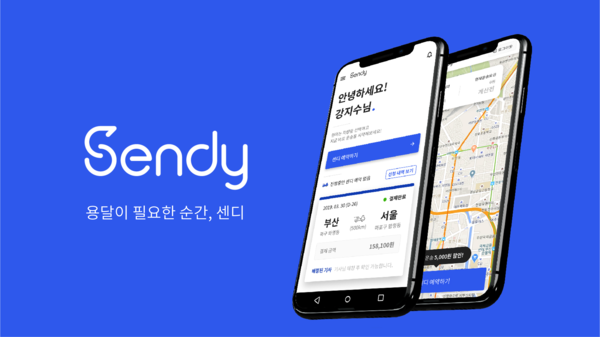How Carrot Market Korea Became Korea’s Neighborhood Shortcut to Success and a Global Unicorn
As someone living in Korea, you’ve likely heard of Carrot Market (당근마켓)—the country’s leading secondhand trading platform and a true neighborhood staple. The branding and naming are especially clever. “Carrot” translates to “당근” in Korean, which also doubles as a casual phrase for “your neighborhood.”
Moreover, their logo creatively combines a carrot and a location pin icon. Colored in signature carrot orange, it perfectly reflects the company’s hyper-local mission.
As of November 2024, Carrot Market has surpassed 40 million cumulative users. This represents 80% of Korea’s population. It also boasts nearly 20 million monthly active users (MAU) and over 13 million weekly active users (WAU). In doing so, it has redefined local commerce by fostering trust and connection within tightly-knit communities.
At Blue Whale Insight, we analyze such game-changing startups to extract lessons relevant to small business owners and entrepreneurs. This week, we explore how Carrot Market’s hyper-local approach, visionary leadership, AI-driven innovation, and steady scaling built a giant ecosystem, leveraging insights from founders Gary Jung (정기석) and Dawin Lee (이채현).
The Birth of Carrot Market Korea: From ‘Pangyo Marketplace’ to a Peer-to-peer Secondhand Trading Phenomenon
Carrot Market’s origin traces back to a simple but revealing observation—coworkers trading items on their company’s internal bulletin board conducted transactions with fairness and care. Founder Gary Jung (정기석) explained in an interview how this workplace trust inspired the creation of ‘Pangyo Marketplace’ in 2015, a closed trading community limited to verified employees in Pangyo Techno Valley (Silicon Valley area of Seoul, South Korea).
Co-founder Dawin Lee (이채현) recalls their early hustle. They used drones flying banners, gave out coffee coupons, and ran grassroots campaigns to attract users. Once weekly visitors hit 1,000, they opened the platform to all Pangyo residents. From there, Carrot Market began expanding—slowly and intentionally.
Carrot Market Korea Founders & Team Origins
Carrot Market was founded in 2015 by three former Kakao colleagues—two developers and one product designer. This background gave them valuable insights into building large-scale user communities and trustworthy digital platforms.
For over two years, the team remained lean with fewer than 10 employees, focusing on crafting a product grounded in strong values. As growth accelerated, Carrot Market Korea expanded rapidly to around 400 employees by 2024, upholding a culture that prioritizes hiring talented and inspiring individuals. This shared history and intentional team-building have been fundamental to Carrot’s success.
Hyper-Local Strategy: The Secret Behind Explosive Growth
Decades of research suggest startups that “go wide fast” often face fractured communities. Carrot Market took the opposite route. Lee explained, “We never launched nationwide at once. We started with one small neighborhood and only expanded when the model succeeded locally.” This deliberate rollout fostered trust and community cohesion.
Built-in safeguards such as the ‘Manner Temperature’ reputation system encourage courteous, responsible behavior. Restricting trades within a 6-kilometer radius promotes face-to-face interactions and accountability. This strategy helped Carrot become a dominant local marketplace trusted by millions.
Supporting services: beyond secondhand trading, Carrot runs “동네생활” (neighborhood life) communities, “Biz Profile” for local businesses, job postings like “Carrot Part-time”, and “Carrot Pay” for localized payments.
These diverse services strengthen community bonds and boost in-app engagement, 2024 data shows all-time high user retention and session times. By April 2024, Carrot Market boasts a remarkable 19 million monthly active users, covering 60% of Koreans aged 26 to 65. At this scale, the startup is no longer just an app; it’s a staple of daily Korean life.
Carrot Market’s Strategic Shift Toward AI Integration
In the era of generative AI transforming everyday work, Carrot Market is boldly integrating AI not just as a feature add-on, but at the core of its product design. Founder Gary Jung (정기석) shared that the company asks itself, “What if we were AI startup founders?” with an ambition to build AI-native products that redefine user experience.
The focus is clear: AI is a tool to dramatically improve convenience and satisfaction. To move fast, Carrot has embraced rapid decision-making, executing on approximately 70% confidence and iterating quickly based on real-time user feedback. Structural barriers like excessive meetings and approval processes are removed to accelerate innovation.
Teams participate in weekly AI “Show & Tell” sessions to share lessons learned from successes and failures, fostering organization-wide confidence in AI initiatives.
Practical AI applications include:
- Identity team: Automating repetitive tasks like user data summaries and error analysis with internal Slack bots.
- Real estate team: Collaborating across roles to create AI-generated listing summaries that improve search.
- Operations team: Organizing into problem-focused groups, delivering AI features with weekly feedback loops.
Clearly, this transformation is not just about technology. It’s about rethinking culture and workflows to thrive in the AI era.
Scaling Beyond Korea: The Vision and Challenges of Going Global
In January 2022, Gary Jung took a major step—he moved to Canada to lead Carrot’s global expansion. His philosophy? “At least one founder must understand local nuances abroad to adapt Carrot’s values in completely different market landscapes.”
The early results are encouraging. In North America, users grew from 70,000 in late 2022 to over 200,000 by mid-2023. Meanwhile, a dedicated team in Japan is building momentum.
Still, Jung and Lee understand the core challenge: how to localize without losing the company’s defining hyper-local character.
From Garage Startup to Unicorn: Funding, Revenue, and Business Model Evolution
Starting with three core team members, Carrot Market defied conventional startup hype by focusing on slow, steady growth supported by solid fundamentals. Funding rounds began modestly: 13 billion KRW in Series A in 2016, gradually escalating to Series D in 2021 raising 180 billion KRW, culminating in a valuation near 3 trillion KRW (around $2.5 billion).
Carrot’s business model prioritizes advertising revenue rather than transaction fees. Their “Expert Mode,” launched just 18 months ago, enables small business owners to target ads by neighborhood or interest with granular control. This contributed to a stunning 17-fold increase in advertisers and smashed 1.2 trillion KRW in revenue in 2023, with strong profitability.
Lee highlighted the company’s culture: “We hire people better than ourselves and foster a sharing mindset. Weekly all-hands meetings review wins and failures transparently, empowering every team member to lead initiatives.”
Conclusion Carrot Market Korea
For entrepreneurs and business owners tuning in this Monday morning, Carrot Market’s journey offers essential takeaways: nurture trust rooted in community, execute expansion deliberately, and balance growth with core values. Carrot’s success story is a powerful case of hyper-local strategy scaling to global ambitions—a model worth watching closely.
Blue Whale Insight remains committed to sharing stories of start-ups that redefine markets. Stay tuned next Monday for more inspiring stories.
Carrot integrates AI deeply into product design and workflows for faster innovation. Teams automate tasks, personalize user experiences, and analyze feedback with AI tools. This approach boosts user satisfaction and keeps Carrot competitive in a fast-changing market.
They expanded carefully, testing markets neighborhood by neighborhood to ensure quality and fit. Grassroots marketing and a transparent company culture helped build loyal users. This deliberate growth balanced fast scaling with preserving core community values.
Carrot Market limits trades within a small radius, building trust through face-to-face neighbor interactions. Features like ‘Manner Temperature’ and neighborhood verification reduce fraud and encourage courteous behavior. This focus creates a safer, more connected community than broad nationwide platforms.
As of 2023–2024, Carrot Market’s valuation remains around 3 trillion KRW (~$2.5 billion), with no major new funding rounds publicly reported since the 2021 Series D. In 2023, Carrot Market recorded revenue of approximately 127.6 billion KRW and achieved profitability for the first time in eight years. This milestone highlights the company’s successful transition to a sustainable and growing business model.
As of November 2024, Carrot Market’s 40 million cumulative users represent roughly 78% to 80% of South Korea’s total population, which is about 51 million people. With nearly 20 million monthly active users (MAU) and over 13 million weekly active users (WAU). This makes it one of Korea’s most widely used hyper-local community platforms.




